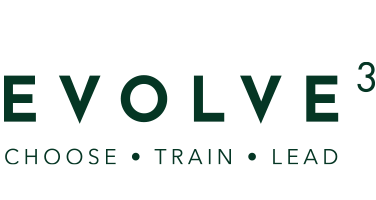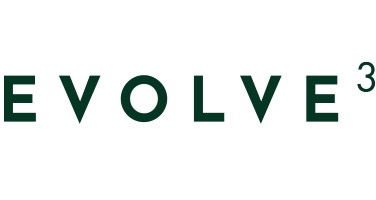
12 Jun The importance of questioning technique during selection interviews
We can be our own worst enemies when it comes to making good hiring decisions because we often suffer the same delusion:
“I’m a great driver, I’m great in bed, and I’m an excellent judge of character.”
Many hospitality job interviews involve a brief, informal chat over a coffee with a prospective candidate. You may think this is effective because you think you ‘know how to pick ‘em’. The problem with this approach to screening candidates is that you make an important (and often risky) hiring decision based on the mask the candidate is wearing during the chat. On the other hand, an effective screening interview involves a structured and disciplined approach to learning about the person behind the mask to make an informed hiring decision based on an objective set of selection criteria.
Here are some tips on questioning technique, designed to help you learn more about a candidate on interview day.
Use open questions
An effective interviewer uses open questions to gain useful information from the candidate. These questions usually start with a “WH word”: WHAT, WHERE, WHEN, WHO, HOW, WHY? They require a detailed explanation from the candidate and can’t be answered with a ‘yes’ or ‘no’.
Examples to begin an open question:
‘What was your reasoning behind saying …’
‘Why did you think that …’
‘How did you …’
Examples of open questions to encourage the candidate to share more detail:
‘Then what…’
‘Tell me more…’
‘Please give me more details …’
‘Please share an example of…’
The use of open questions with two or more alternatives are a great way to encourage a candidate to express their preference about different working conditions:
‘Is your preference for a role with customer contact all of the time, most of the time, some of the time or never?’
Follow up with ‘Why?’
‘Some people like a team environment, others like to be given a job and then left alone.
‘What do you prefer?’
Examples of open questions that require an answer based entirely on the candidate’s personal preferences:
‘What’s your ideal roster look like?’
‘What would you like to learn in your next role?’
‘When do you prefer to have days off?’
Examples of open questions that help assess the candidate’s motivations:
‘What did you find positive in your last role (or previous roles)? Why?’
‘What didn’t you like about your last role? Why?’
Asking hypothetical questions – to test problem solving.
Set up a hypothetical situation or problem which requires the candidate to explain how they would handle it and their reasoning for that course of action. Hypotheticals can be helpful for assessing how well trained or familiar someone is in handling certain situations. However, it is hypothetical, so it doesn’t necessarily indicate their real-world abilities.
Examples of hypothetical questions that help assess the candidate’s problem-solving skills or how they might handle a course of action in certain circumstances:
‘How would you have handled the following . . .?’
‘What would you do if . . .?’
‘If I asked you to . . ., what would you do in order of priority to ensure . . .?’
Role playing – to test situational communication.
Set up a scenario where the candidate must act out a part. Like a hypothetical question, but includes the interviewer engaging with the candidate in the role play to ascertain their ability to communicate in ‘real time’ rather than just answer theoretically. The interviewer can increase the difficulty of the interaction depending on how the candidate responds. Role plays are particularly useful when assessing someone’s leadership communication abilities. This type of question can indicate what kind of real-world situations the candidate has encountered in previous roles and their comfort (or not) in navigating them.
Consider role playing challenging interactions such as: handling a customer complaint; addressing poor performance; asserting oneself upwards to senior management or the owner.
Reality check questions – to encourage honest responses.
A useful questioning technique to encourage the candidate to provide honest, direct responses during the interview. Ask them about something specific they’ve claimed about a previous role. Then assertively indicate that you will be cross checking this with their ex-employer when you conduct a reference check.
For example:
‘What training responsibilities did you have in your last role?’
‘How often did you conduct training sessions in your last role?’
‘How many hours per week did you spend training other staff, on average?’
Once the candidate has answered, the interviewer would then say:
‘When I ask your last employer about your training responsibilities and how much time you spent training other staff, will they confirm what you’ve just told me?’
By carefully assessing their response and body language you will gain useful information about them, and it should encourage them to be honest and accurate for the rest of the interview when discussing their previous experience.
Contrary evidence questioning – to test how a candidate handles themselves when put under pressure.
If the candidate seems particularly strong or weak in an area you’re exploring, you may choose to gain some contrary evidence to provide some balance and put what they’re asserting into perspective.
For example:
‘You’ve given me plenty of examples of when you’ve handled difficult customers well, give me an example of when you didn’t handle a customer as well as you could have?’
A common subject to use in this way is if you find inconsistencies in their resume or discover a mismatch between what they’ve asserted about themselves in the interview and documented information contained in the resume, application form or reference checks etc.
For example:
‘You’ve just confirmed that you worked at Café X between February and September in 2016, but you haven’t listed this job in your work history on the application form that you signed as accurate and correct. Why did you do that?’
Types of questions to avoid
Closed questions — can only be answered with a ‘yes’ or ‘no’. Unless the interviewer wants to confirm something specific, closed questions are best avoided during a job interview.
Leading questions — imply the correct answer. For example:
‘Of course, you understand importance of good customer service in a hospitality business?’
This provides no information of value in an interview.
Ambiguous questions — are vague and confusing. The candidate is often unsure of how to answer because it’s not clear what you’re wanting to know.
For example:
‘Tell me about yourself?’ or
‘What does motivation mean to you?’
The take-away
You’re better off to put in the time and effort up front to ensure you only hire people who are a good fit for the roles you need filled in your business. Get it right and it will be much easier to maintain standards and profitability, while keeping staff turnover to a minimum. Getting it wrong can be costly and even cripple your business.



